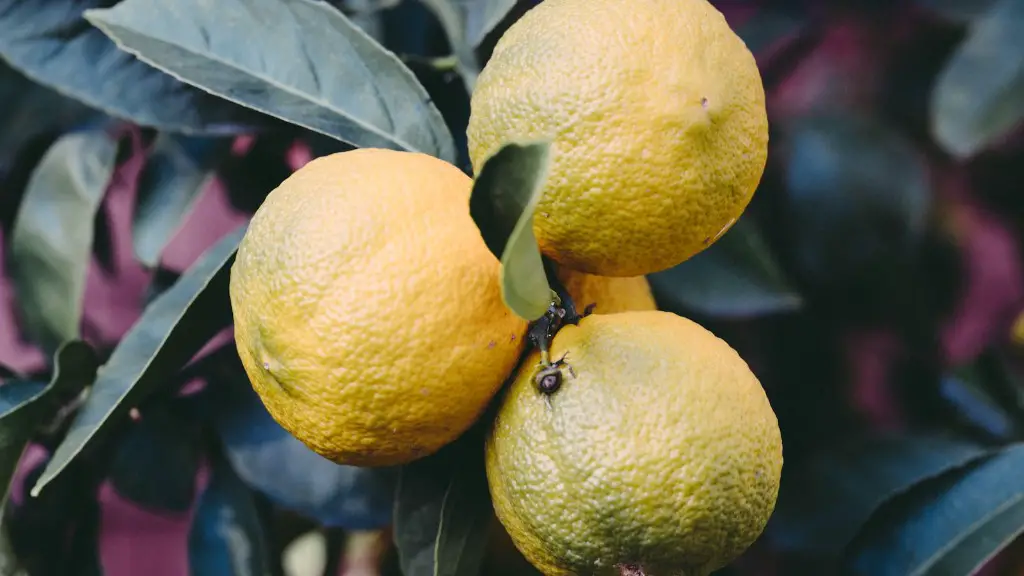Background Information
Avocado trees are a popular choice for gardens and landscapes worldwide. While they can generally live and thrive in any climate, they do take time to produce fruit. Depending on the type of tree and its environment, there can be years of waiting before the first batch of avocados is ready to be harvested. Before planting, gardeners need to research the right type of tree for their climate, as well as determine how long it will take for the tree to bear fruit.
Expectations
When it comes to fruit production, avocados can take anywhere from two to fifteen years to reach maturity. Dwarf varieties may take two to five years to produce fruit, while large-growing trees may require up to fifteen years. Most commercial avocado trees take five to seven years to reach maturity and begin to produce fruit. Additionally, it is important to remember that not all avocado trees will bear at the same time. Depending on the growth stage of the tree, some plants may need more time than others.
Climate Factors
Weather and climate conditions can also affect when avocado trees will fruit. For example, plants grown in cooler climates may have a longer time to reach maturity before they begin to produce. Additionally, low-light conditions can make it difficult for avocados to produce flowers, which can delay the start of the fruiting process. With proper care and adequate sunlight, however, avocados can reach maturity and bear fruit much sooner than expected.
Pruning and Pollination
The shape and size of the tree can also impact how quickly an avocado tree will begin flowering and bearing fruit. Pruning the tree back to maintain a desired size and shape can speed up the process, since the tree will need to expend less energy in order to produce flowers. Additionally, pollination is an important factor in encouraging fruit production in avocado trees. For this reason, it is important to make sure the tree has ample exposure to bees or other pollinators in order to ensure that the flowers are pollinated.
Harvest and Quality
Once an avocado tree begins to fruit, it is important to watch for signs of ripeness. Depending on the variety and climate, it can take anywhere from six to twelve weeks for fruit to ripen. The fruit can also vary in size and shape, as some varieties produce smaller avocados with smoother skin.
When harvesting, gardeners need to be mindful to pick their fruit carefully. Avoid jarring or shaking the tree too much, as this can cause the fruits to ripen prematurely. Additionally, it is important to check the branches and leaves for signs of disease or pests. If any insect or disease damage is detected, it is essential to take action immediately to prevent further damage to the trees and fruits.
Care Tips
Although it can take some time for an avocado tree to begin fruiting, there are a few simple steps that a gardener can follow in order to expedite the process. First, ensure that the tree is planted in an area with ample sunlight and minimal wind exposure. Additionally, use a fertilizer specifically formulated for avocados to boost the tree’s vitality and promote the growth of healthy fruit.
Finally, regularly inspect the tree and its fruits for signs of pests or disease. If any issues are noticed, take immediate action to prevent further damage or loss of fruit. Following these simple steps can help gardeners to shorten the time it takes for avocados to begin producing fruit and enjoy the delicious fruit of their labor.
Soil Type
Another factor that gardeners need to consider when determining when their avocado tree will fruit is the type of soil in which it is planted. Avocado trees grow and produce best in soils that are well draining, but contain some organic matter. Additionally, a soil pH of 6.0 to 6.5 is optimal. Regularly checking the soil’s pH levels and adding organic matter when needed can help ensure optimal health for the tree and its fruit.
Habitat
In addition to soil type and climate, avocados will also respond to their environment and the presence of other plants if growing in a multi-species environment. For optimal results, growers should plant their trees away from other plants or trees that could shade them, as well as take steps to create a hospitable environment for beneficial insects such as bees, which can help to pollinate the flowers and promote fruit production.
Watering
Regular and adequate watering is critical to ensuring that an avocado tree reaches maturity and fruits in a timely manner. Generally speaking, trees should be watered deeply to keep the soil consistently moist, but not over watered to the point where water stands. Water deeply usually twice a week and take weekly soil moisture readings to ensure that the soil is never too dry or too wet.
Fertilizing
Fertilizing is another key component of promoting the growth and fruit production of an avocado tree. About a month before the flowering season, gardeners should use a fertilizer specifically formulated for avocado trees, such as a balanced 10-10-10 fertilizer. Apply the fertilizer according to the package instructions, and continue to fertilize the tree at regular intervals throughout the season to keep it healthy and productive.
Pest Management
Lastly, it is important to regularly monitor and manage pests. Regular scouting for signs of pests and disease, as well as preventive measures such as natural sprays and traps, can help to keep your tree healthy and productive for years to come. Additionally, if any pests or diseases are detected, be sure to take appropriate action in order to minimize any further damage to the tree.

